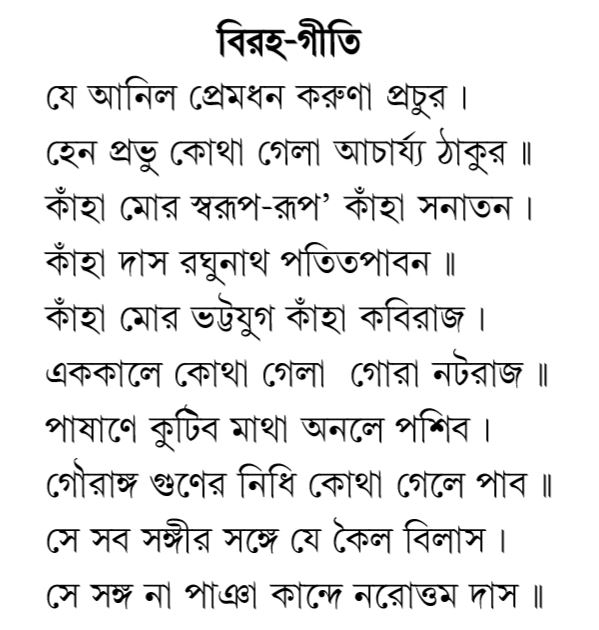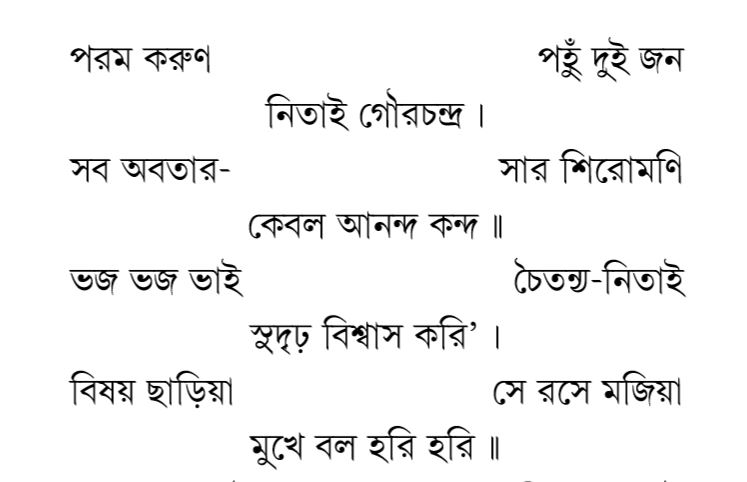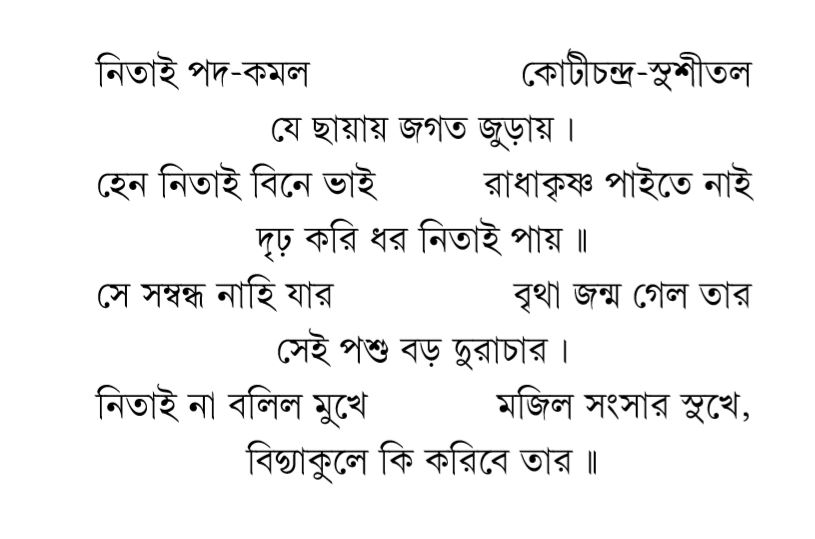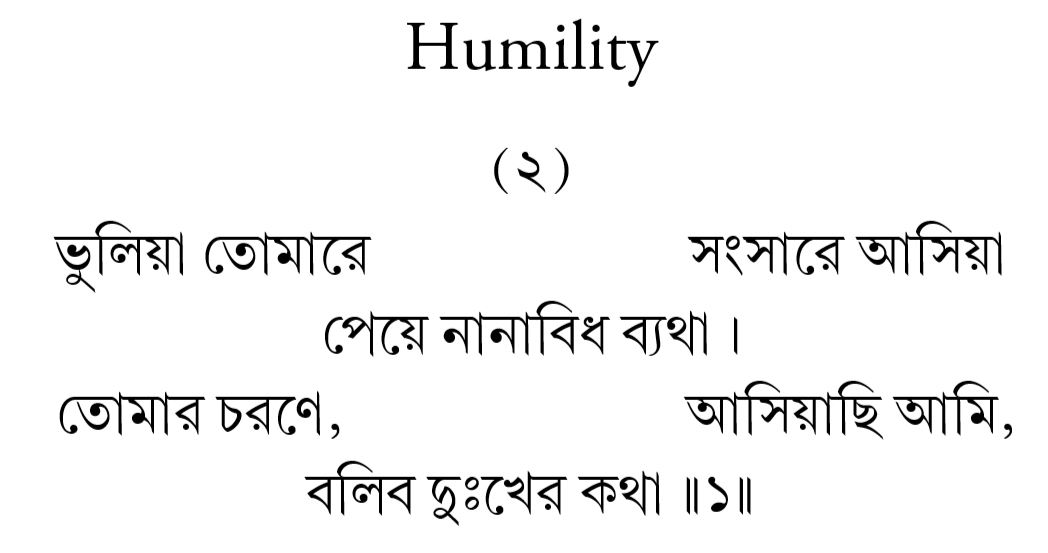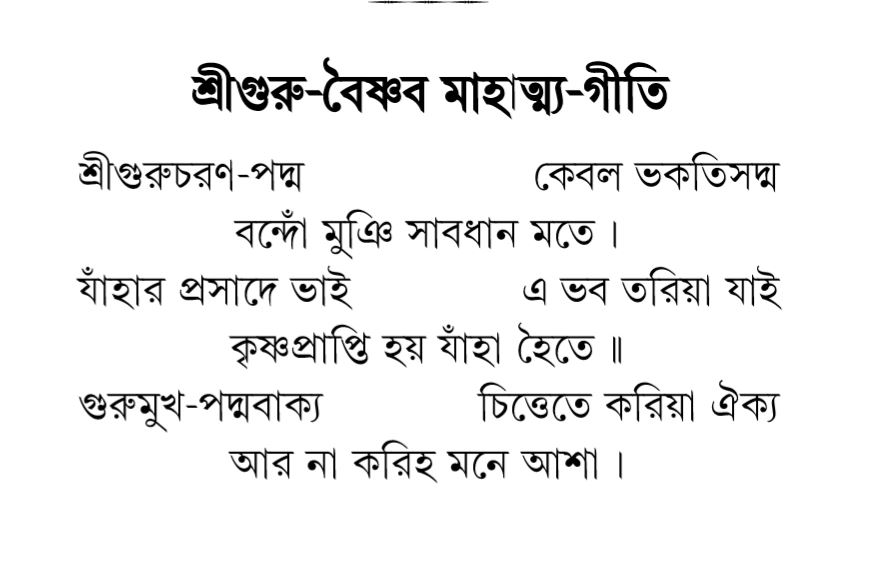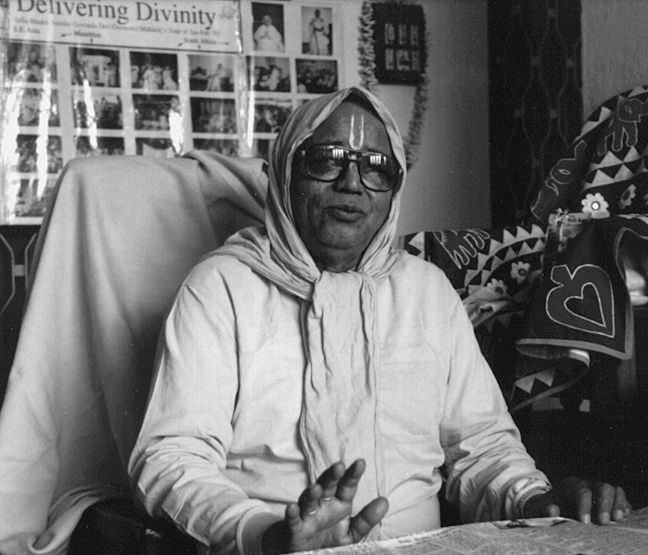
Everyone wants to see the result, and some are getting some result no doubt, but generally we are seeing that although devotees are chanting so much and enthusiastically doing so much seva, they are not getting the result they are searching for. It is very difficult to say how some nourishment will come quickly from our activities, but if we are fully surrendered to Lord Krishna and if we have sincerity then we must get the result. Many times I have told, chastity and sincerity are necessary. It is not only for the practitioner’s activity, it is for all activity of the jiva-souls. Sincerity and chastity will give us proper inspiration and steadiness in our practising life. If we have that sincerity we will search for how our activity can be promoted to the devotional level, and we must go to the sadhu. We must try to get good association, because we know only good association can give that to us, and bad association must always be avoided.
It is not easy to recognise what is good and what is bad, but at least if we are sincere in the line of Krishna consciousness then by the grace of Lord Krishna and by the grace of Gurudev we will get that good association. We can recognise, to some degree, what is good and what is bad, but not fully because we are not qualified.
Good association
Good association means the association of the scriptures and living sadhu. It is very difficult to say who is a sadhu, and we will only follow who we are seeing has engaged his twenty-four hours for the service of Lord Krishna and for the service of Guru and Vaisnava. We will try to get his association, and he will give so much nourishment to us because he will be very enthusiastic to see our mood and he will mercifully give us his practising process, by which he is proceeding in spiritual life, and he will give us what is good for us. He will affectionately try to give us good nourishment. In this mundane world it is very difficult to choose good association no doubt, but what shall we do? Without that we will not get the proper line of Krishna consciousness.
Now in this material world we can see so many societies in the form of Vaisnava societies, and they are also trying to give some Krishna consciousness to others. Sometimes some devotees are frustrated—some sincere seekers, not devotees I can say. The sincere seeker will first ask, “Where shall I go and where not?” Then they will pray to Nityananda Prabhu and they will pray to Mahaprabhu, “Please give me that association which will be good for my practising life.” In this way they will try to search with their sincere mood and Krishna must give them good nourishment. This is my faith. But when Guru is not present then we must try to get good association and that will come through the scriptures also, like Srimad Bhagavad-gita, Prappana-jivanamrta, and so many other books written by Srila Bhakti Vinod Thakur, Narottam Thakur, and others. That is also very good association. If we do not have the association of the living Vaisnava we can try to get that association.
Devotional mood through song
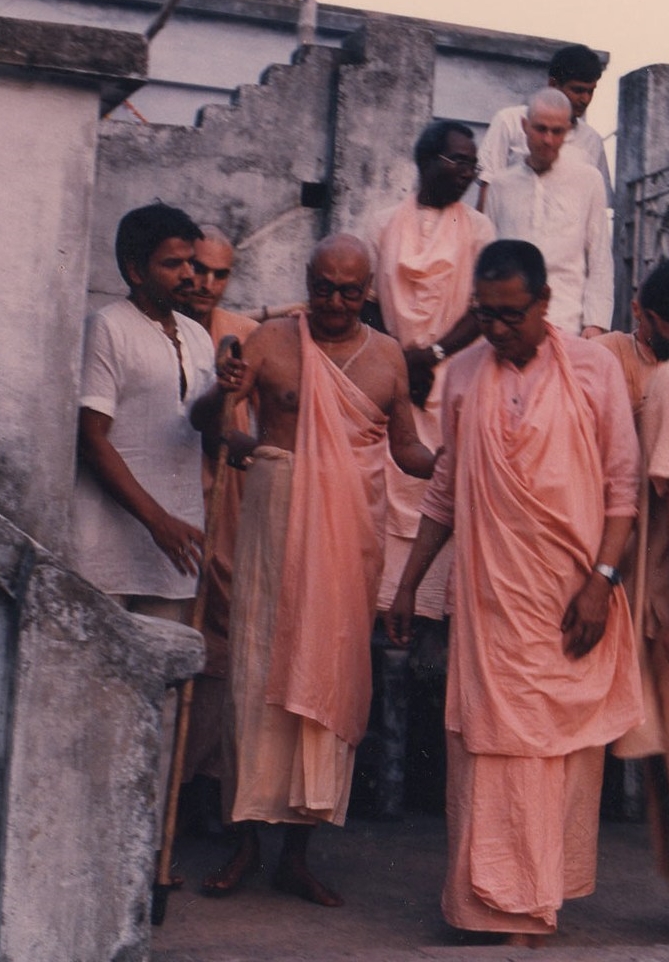
If we think about the meaning of so many songs that will also act as association of the sadhu and reveal in our heart. We will also get good nourishment through that. When some meeting would come for preaching and Srila Guru Maharaj was present, Guru Maharaj would tell me, “Sing this song.” Like Emona durmati saṁsāra bhitare paḍiyā āchhinu āmi. Guru Maharaj wanted to give that conception to others and I would think, “Why did Guru Maharaj choose this song for me? Because he wants to make me perfect. My feelings will grow in the line of that song and I shall get a good devotional mood through that song and then I can give that to others.” I would not think he told me, “Sing this song” only for singing, but I thought in this way, that this is for me and others will hear and they will also be benefitted if they follow that song. In this way Srila Guru Maharaj chose many nice songs for me and when a meeting came he would order me, “Sing this song, sing that song.” Through that I understood the songs of Bhakti Vinod Thakur and Narottam Thakur, as well as Srimad Bhagavad-gita, Prapanna-jivanamrta, and other books. These writings must give us very nice inspiration, association and a mood of service, and if we also get the association of a living sadhu, there is no question that that sadhu will always try to engage us. He will do that as his duty. He is always serving Krishna and Guru twenty-four hours a day and he will also try to engage us twenty-four hours a day in that service. If we can follow him that is very good, and if we can follow him partially that is also good. That will be good for our spiritual life.
“Where is my fault?”
We must be sincere and we must be chaste in the line of Krishna consciousness. That means our faith must be strong: “I must get it, today or tomorrow.” If the result is not coming then I must try to search within me, “Where is my fault?” And if we try to understand where our fault is then mercifully, by the grace of Krishna, it will appear to me, “This is my fault.” ‘Fault’ has three places only, and they are all because of my ego. First is ego. From outside so many disturbances may come to us but if we try to understand why we will be careful and try to leave our mundane ego. We shall try to proceed in this way, and we must get the result: we must keep this type of faith. Two plus two is equal to four: this is a normal result and when two plus two equals five it is the wrong result and we must search where the fault is. If we can get a living sadhu that sadhu can rectify us very easily. If we pray to Nityananda Prabhu and He gives us His grace it will come to us. There is no other way.
It is necessary to leave our mundane ego as much as possible. We are all practitioners practising Krishna consciousness and we must be careful, “Why is the result not coming to me?” The result must come. We shall try to realise where our fault is, and we must be benefitted through that realisation.
Srila Gurudev speaking in Nabadwip Dham, 31 October 1999
Reference
(prabhu he!)
emana durmati saṁsāra bhitare
paḍiyā āchhinu āmi
tava nija-jana kona mahājane
pāṭhāiyā dile tumi [1]
O Lord! I am very wicked-minded and have fallen into this material world, but You have sent a great soul, Your associate (to rescue me).
dayā kari more patita dekhiyā
kahila āmāre giyā
ohe dīna-jana śuna bhāla kathā
ullasita ha’be hiyā [2]
Seeing me so fallen and being merciful, he came to me and said, “O humble soul, listen to this wonderful message and your heart will rejoice.
tomāre tārite śrī-kṛṣṇa-chaitanya
navadvīpe avatāra
tomā hena kata dīna-hīna jane
karilena bhava-pāra [3]
“Śrī Kṛṣṇa Chaitanya has appeared in Nabadwīp to deliver you. He has brought many humble souls just like you to the shore of the ocean of material existence.
vedera pratijñā rākhibāra tare
rukma-varṇa vipra-suta
mahāprabhu nāme nadīyā mātāya
saṅge bhāi avadhūta [4]
“To fulfil the prophecies of the Vedas, He has appeared with a golden complexion as a brāhmaṇ’s son bearing the name ‘Mahāprabhu’ and driven all of Nadia (all the world) mad with divine love in the company of His brother Nityānanda.
nanda suta yini chaitanya gosāñī
nija-nāma kari’ dāna
tārila jagat tumi-o yāiyā
laha nija paritrāṇa [5]
“Śrī Chaitanya, who is Kṛṣṇa Himself, has distributed His own Name and delivered the world. Go also and accept your deliverance.”
se kathā śuniyā āsiyāchhi, nātha!
tomāra charaṇa-tale
bhakati-vinoda kadiyā kadiyā
āpana-kāhinī bale [6]
O Lord, hearing this message, Bhakti Vinod has come to the soles of Your feet. Crying, he tells his story.
(Śrīla Bhakti Vinod Ṭhākur)

